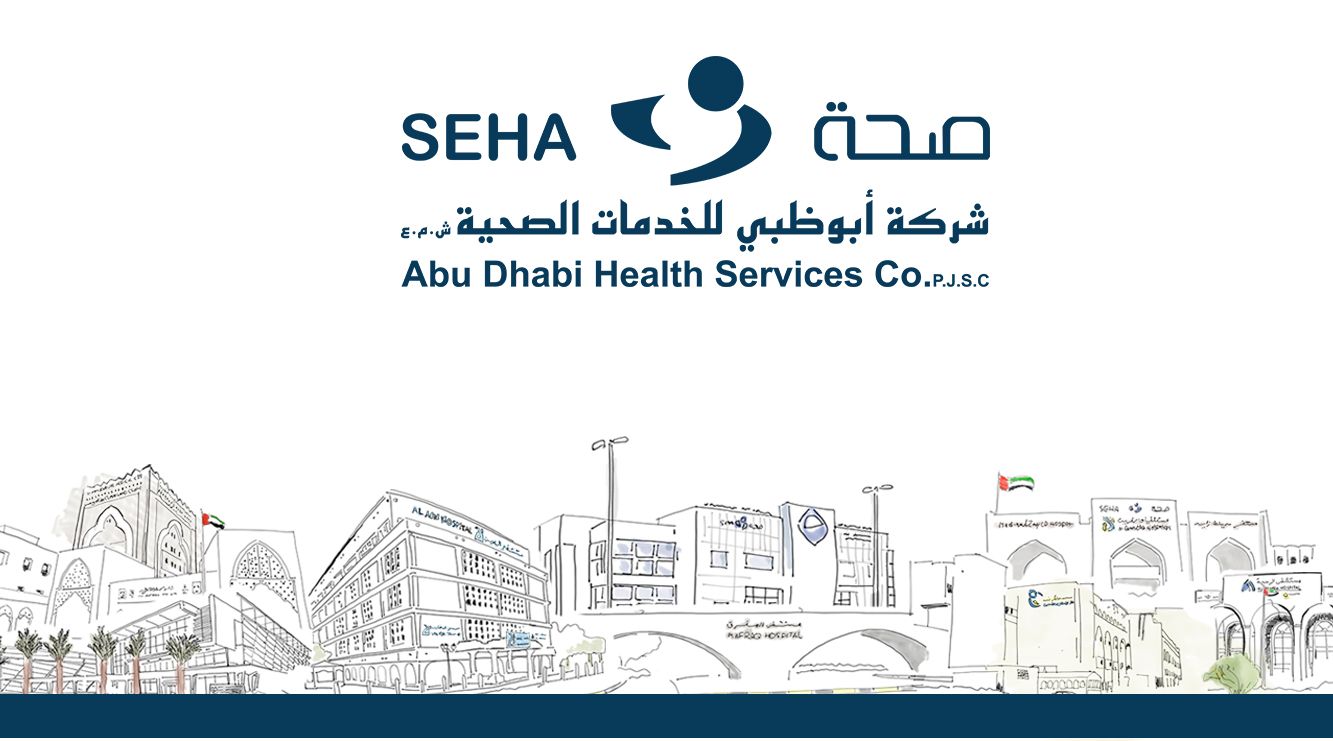Abu Dhabi Health Services Company (SEHA) has concluded Covid-19 accelerator program which was conducted in collaboration with UAE University Science and Innovation Park and Future of Work Lab. The program successfully helped healthcare professionals and innovators in identifying pandemic challenges and also to work on possible innovative solutions to ensure effective and continuous healthcare availability. Accelerator program, which was conducted over four weeks, was done through virtual sessions. The program’s interactive workshops were participated by five teams of SEHA specialists, UAE University students and researchers, entrepreneurs. The participants developed concepts to address various challenges being faced during pandemic and thus helped in ensuring better healthcare for future.
Virtual sessions were constituted of open dialogue, to enable creative ideas development and also provide appropriate conditions for their rapid implementation.
Dr. Ali Al Obaidli, Chief Medical Officer, SEHA Kidney Care, SKC and Chair, COVID-19 Clinical Trials and Therapeutics Research, SEHA, said, “In line with its commitment to transforming the UAE’s healthcare ecosystem, SEHA is dedicated to elevating medical research, education and training. We are always on the lookout to partner with local and international academic institutions, particularly the UAE University for its position as one of the most prestigious universities in the country and its focus on research. This accelerator program is yet another product of mutual commitment from both SEHA and the UAE University to elevate the health sector’s capabilities and efforts in building the healthcare offering of the future.”
He added, “The healthcare sector is one of the most important industries in an economy – one that requires continuous research and education to keep up-to-date with developments and educate and train those on the frontlines to ensure that the community always has access to best in class healthcare.”
The UAE University Science and Innovation Park extends opportunities to students to help them develop ideas, prototypes, their skills and knowledge, also encourage them to follow entrepreneurship, thus contributing in making Abu Dhabi an economy based on knowledge.
Prof. Nihal Chabrak, Director of the Business Incubators Program at UAE University’s Science and Innovation Park, said, “We are pleased to have partnered with SEHA to continue making strides in medical research and innovation, with the UAE’s community’s interest at the center of our collective mission. During our collaboration, we learnt from one another and leveraged each other’s strengths, as the UAE University dedicates its skills and expertise to medical research and in support of SEHA’s ambition.”
SEHA collaborated with Future of Work Lab, an EU based talent accelerator operating internationally with healthcare and education as focus, to initiate the accelerator program. Future of Work Lab is committed to assist professionals and university students to explore pioneer and emerging technologies, while understanding the change driving factors and also practice the required skills for future.
Ugo Bot,co-Founder of Future of Work Lab, said, “Our partnership with SEHA and the UAE University Science and Innovation Park allowed us to accelerate five solutions with regards to COVID-19 challenges as a collaborative effort involving healthcare professionals, university students and technology providers, support the growth of the HealthTech ecosystem in the UAE, and build the participants’ human centered innovation skills.”
By monitoring Covid-19 pandemic on a daily basis in UAE, SEHA and UAE University Science and Innovation Park marked five prime challenges that are faced by healthcare professionals. These include “the continuation of care for those with chronic diseases, tracking and managing COVID-19 patients, caring for those infected with the virus through a reliable treatment plan, increasing the capabilities of hospitals to accommodate COVID-19 patients while protecting the safety of medical staff, and protecting the mental health of COVID-19 patients and frontline workers.”
For first challenge of continuation of care for people with chromic diseases, the program studied solutions which ensure that senior citizens and residents, and children are provided with continuous care, especially those with diabetes, high blood pressure, cardiovascular diseases, renal diseases, tumors and pregnant women. This would be achieved through modern technologies for diagnosis and adequate medical consultations with proper prescriptions that can be delivered at home.
The second challenge of tracking and managing Covid-19 patients, the program has explored an automated digitalized solution that will utilize artificial intelligence to complete vital tests and temperature checks for patients, and then categorizing them to different streams, like those who require further testing, home quarantine needed, etc.
To rectify the third challenge of caring for Covid-19 infected through reliable treatment plan, SEHA along with UAE University Science and Innovation Park has redesigned the patient journey from early detection to complete recovery. This will include innovative solution through artificial intelligence, advanced communication applications, remote patient monitoring and also quick monitoring to identify rapidly deteriorating cases. There would also be clinical research on asymptomatic cases to understand the disease pattern in a better way.
Fourth challenge identified is of increasing hospital capabilities to accommodate patients with Covid-19 while ensuring safety of hospital staff. Solutions included in discussions were of wearing personal protective equipment, building modular, affordable and scalable units, additional beds in negative pressure rooms and use of technology to sterilize and disinfect hospitals.
For fifth challenge of protecting mental health of patients and frontline healthcare professionals, the program evaluated utility of artificial intelligence to provide mental health care remotely and also extend necessary support to those who require it.
WAM
 AR
AR UR
UR
